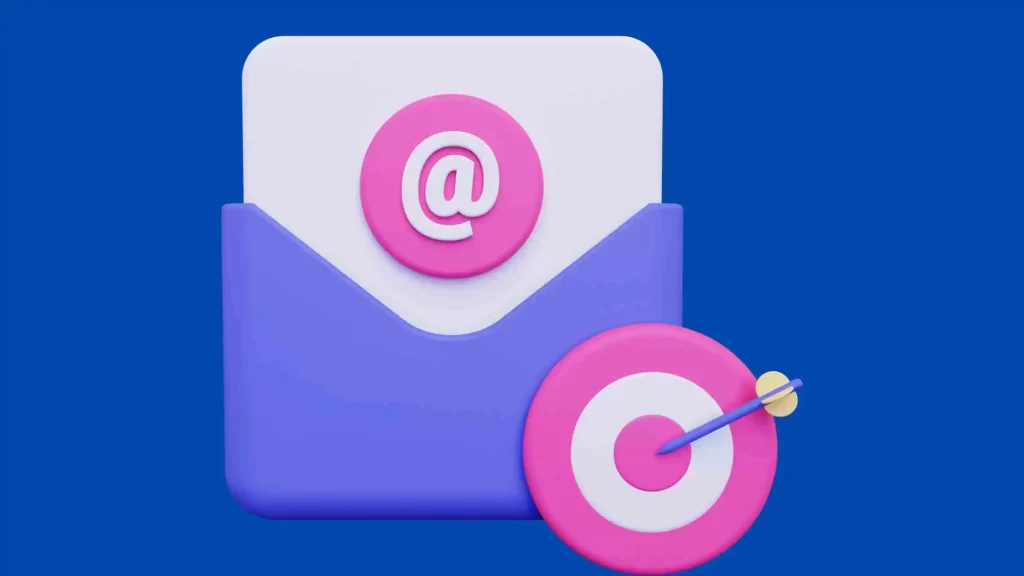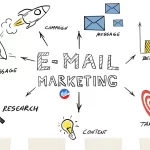Setting the right goals for email marketing is crucial to success. Email marketing is a priority for nearly all organizations that seek results online.
Not when 60% of customers say they made a purchase because of an email message they received. (source constantcontact )
Goals for Email Marketing
Other people adore goals, and some people despise them. The issue is not so much the objectives as the fact that we have not attained them in the past.
The reality is that when we wish to better any area, goals may assist us in a long way. And that there is space for development in email marketing.
We can speak about email marketing goals for a long time, but the core reasoning is simple.
- The goal must have some value
- The target must be found in time
There are, of course, more characteristics, but these two characteristics are enough for a start.
I hope to create a turnover of $10,000,000 in 2025 via email marketing.
A clear, ambitious objective. I know what I want.
Send the first batch email in Q1 2024.
Great goal. Even the beginning may be a goal.
For additional inspiration, check out our guide on How to Write an Email that Stands Out and gets Read.
Now let’s move on to places where you can establish your email marketing goals.
Remember that if anything makes sense to you, add the two given characteristics, and you have your aim.
1. Database growth
A database of contacts who know you or your brand is a gold mine. So if you concentrate on building it, you can’t go wrong.
You need to obtain contacts in your database that will consume your every email. The more such recipients you have, the higher results you will see in each email campaign.
Just don’t marry the absolute number. 100,000 receivers seem amazing, but you really don’t want to have people in your database that are a jerk. They are “dead souls” who won’t purchase anything regardless. You’d like best to purge your database of them.
Everyone has some contacts. Even a promising entrepreneur. Even a complete introvert. Established firms have tons of them.
Regardless of the size of the database, however, it is true that…
…the database organically declines by 22.5% per year. (source Hubspot )
So it is vital to infuse “fresh blood” into it continually.
2. Openness of emails
The ratio of people who open your emails is a fundamental metric of the performance of email marketing. You know straight immediately whether your campaign was successful or not.
Although we will never obtain 100% openness, we should absolutely not be pleased with its continual deterioration.
Openness varies from field to field, but such healthy openness begins around 20%. Over 30% of you are already doing something good. However, some of our customers have an openness of above 40%. And they have tens of thousands of contacts in their database.
Increasing openness over the long run implies that people desire to receive emails from you. It’s not simply about eliminating those who don’t open them. But this may be a shortcut if you want to attain that objective tomorrow.
3. Clicks and engagement
If they don’t click, they won’t purchase. We just cannot get around this truth.
Registering your message and replying to what you tell me are two separate things.
You can send out a photo newsletter. Half the database will view it, exclaim, “Wow”, and then watch another “very hilarious” video.
With email, we goal to generate a response in people. Whether it is a response in the form of a comment (preferably positive), forwarding an email or, ideally, a click-through to the sites.
Getting people to click isn’t merely an issue of urgency. A discount today, one in the morning, another in the evening, a discount tomorrow, another discount the day after tomorrow. It works for sales, but it also “screws” a lot of people. (Actually, that’s precisely what they say.)
Come up with innovative methods to boost click-throughs to push your recipients to perform that really tough swipe at least once a month.
4. Business outcomes
Why do you conduct email marketing? Probably not for you to send emails.
That may be the cause for the assistant who clicks “Send” on a Friday afternoon and then runs to the bar. But this is surely not the reason why you, as a firm, perform email marketing or any other type of marketing.
If you want “more to be known” about you, go back to the first two sections. Or rather, to the 80s, when agencies flaunted virtual reach figures.
Email marketing has a direct influence on orders, sales and financial success for most organizations that do it well.
Here, for many companies, the first goal will be “Set up measurement”. The impact of email marketing on sales is not so easy to measure.
Only then can we speak about how much more you want to make from email this year. This is the key goal that should interest every marketer, if not the director.
5. More emails (that people read)
I saved the best goal for last. This is a goal that is essential to us at Financebode. It is easy, yet at the same time, quite tough.
What is more?
- A couple of times a month?
- Several times a week?
- Several times a day? Yes, such firms also exist.
Imagine for a minute that you write every day. Every day an email goes out with your name or the name of your brand.
What would you write about?
Unless you’re a totally impersonal organization, I bet there are people who would read an email from you every day.
They are a minority—no question about it. But forsake the goal of satisfying everyone. Better pay attention more regularly to people who are worth it.
Of course, sending daily (or otherwise “more” frequent) emails to everyone may not be a smart idea. There are people who will dump it on your head, and at the same time, they might be your client.
That’s why it makes sense to separate your database. Give alternatives to people who wish to know more. Let even people who don’t want more unsubscribe from a given subject, etc.
Such segmentation is natural in chatbots but also achievable in email. And your database will thank you for it.
Conclusion
Goals are not assumptions. If you realize that a goal no longer fits you, modify it. Just be sure that the change is not due to procrastination.
Goals are not self-defeating. Whether you set one or all of the objectives I’ve recommended or pick your own, establishing them alone does not ensure you will accomplish them.
Put your objective in a conspicuous area and return to it often. This is the only way to ensure that it truly becomes a reality.





